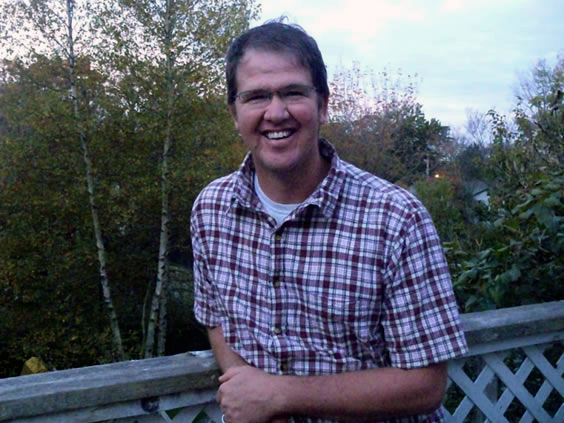New Child and Youth Study professor committed to breaking down barriers for marginalized groups
Born and raised in South Africa, Shane Theunissen joined the Department of Child and Youth Studies in July 2016 as an Assistant Professor. Prior to his academic journey, Shane trained as a commercial diver. However, his true passion has always been sailing and teaching sailing. After setting sail to many exotic destinations around the world, Shane decided he wanted more career security and returned to school at the age of 24. He completed his undergraduate degree in International Studies at the University of Western Ontario, his Bachelor of Education at Lakehead University in Thunder Bay and his Master’s Degree in Education at Queen’s University.
“I had a lot of sailing experience from a young age and taught people how to sail. When I was reflecting on what I wanted my career to be, I realized teaching was the constant theme, which is why I pursued education.”
Challenging homogenized approaches to education
With a love for travel and learning about new cultures, Shane spent the early years of his teaching career in Attawapiskat First Nation in northern Ontario. He taught all subjects to junior high and high school students as well as an adult shop class. After acknowledging some gaps in the Canadian History textbook he was reading from, Shane spearheaded a project that challenged homogenizing approaches to education. “I organized an outdoor education program. We were getting the kids out onto the land where we did fishing trips and moose hunting so they could bring meat back to their families. It got students learning in a different way and other communities took this initiative on and started similar programs in their schools.”
This experience directly impacted the direction of Shane’s research. He is currently examining how indigenous people can participate in the global society, while also maintaining diversity. “If you look at education in its current form, it is very homogenizing. There is an idea that more and more people are conforming to western ideals of education and western ways of thinking, which means we are losing intellectual diversity.”
As part of his research, Shane has been reviewing case studies from three different cultures, including the Moari of New Zealand, Aymara of Bolivia, and Karretjie in South Africa. He is looking at what these groups are doing to maintain cultural viability within a broader context of global hegemonic economic and social structures. He is examining concepts like noetic space, boundaries and re-valorization to determine how these cultures live to maintain value within a cross-cultural context.
When asked what cultural viability means to him, Shane states, “in order for things to have meaning, we have to have the world view that gives that thing meaning. For example, our world view of the environment is that it is a resource and we use it as a resource so we don’t view the environment in any other way. If you come from a different cultural background, you may see things differently. When you think about cultural viability, it’s about maintaining a cultural space. It’s about promoting a space where people can participate in the global society while maintaining diversity.”
Although he is still early in his research, Shane is hopeful that his findings will have an impact on indigenous education structures. His approach of looking at methods across cultures and bringing these findings into the educational sphere is unique. “If you are making a more equitable society and addressing that oppression, you are bringing people more close to the actualization of their humanity.”
Encouraging student voices
As a professor at the Mount, Shane feels excited to have a voice and to have the opportunity to facilitate important discussions. “You see the power that education has in being able to affect the way people see the world.” He is especially passionate about challenging the status quo and supporting marginalized groups.
“It is important to develop access, for marginalized peoples, to structures within mainstream society while also recognizing and legitimizing the learning and life experience that occurs within marginalized or delegitimized areas.”
And although he acknowledges progress is being made, Shane feels there is still much work to be done on the issues facing indigenous people, specifically in the remote Canadian context, to help people maximize opportunities.
It is only fitting that Shane quotes Ernest Hemmingway when asked what famous words he lives by. “The world breaks everyone and afterwards some grow strong in the broken places.”
These words ring true for Shane in his experience as a teacher and as a researcher. “When you look at marginalized groups, resilience is an integral component. I think the people who grow strong in the broken places are inspiring.”
It is no doubt that Shane Theunissen is also an inspiration himself.
